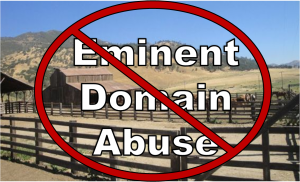Colorado and 16 other states are suing the Fish and Wildlife Service to challenge a land-grabbing rule like none we’ve ever seen.
It’s all in the alleged name of endangered species to provide so-called critical habitat, but this time it’s on land where the critters don’t actually exist, and it extends to private property.
Here’s an example from the lawsuit of what these new rules do:
“The Services could declare desert land as critical habitat for a fish and then prevent the construction of a highway through those desert lands, under the theory that it would prevent the future formation of a stream that might one day support the species.”
The Fish and Wildlife Service responds that these are common-sense changes.
The federal government has used “critical habitat” excuses to block energy development, grazing, road-building, recreation and construction. Until this point, that was for public land where the critters actually lived.
By going beyond their powers to designate nearby private property where the animals don’t exist as containing features that need protecting in case the animal changes its mind and decides to relocate, is nothing short of declaring eminent domain.
Other states suing along with Colorado include Alabama, Arkansas, Alaska, Arizona, Kansas, Louisiana, Michigan, Montana, Nebraska, New Mexico, Nevada, North Dakota, South Carolina, Texas, West Virginia, Wisconsin and Wyoming.

